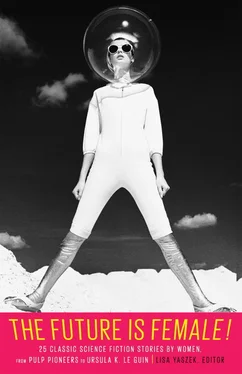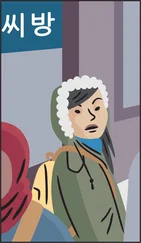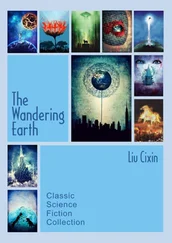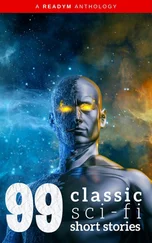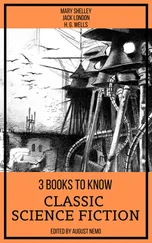Of course no great changes in development come suddenly. Slow evolutionary progress had brought us up to the point, where, with the application of outside pressure, we were ready to handle a situation, that, a century before, would have overwhelmed us.
I reproduce here in part a lecture delivered by a great American scientist, a talk which, sent by radio throughout the world, changed the destiny of mankind: but whether for good or for evil I will leave you to judge at the conclusion of this story.
“Only in comparatively recent times has man succeeded in conquering natural enemies; flood, storm, inclemency of climate, distance, and now we face an encroaching menace to the whole of humanity. Have we learned more and more of truth and of the laws that control matter only to succumb to the first real danger that threatens us with extermination? Surely, no matter what the cost, you will rally to the solution of our problem, and I believe, friends, that I have discovered the answer to the enigma.
“I know that many of you, like my friend Professor Fair, will believe my ideas too extreme, but I am convinced that unless you are willing to put behind you those notions which are old and not utilitarian, you cannot hope to cope with the present situation.
“Already, in the past few decades, you have realized the utter futility of encumbering yourselves with superfluous possessions that had no useful virtue, but which, for various sentimental reasons, you continued to hoard, thus lessening the degree of your life’s efficiency by using for it time and attention that should have been applied to the practical work of life’s accomplishments. You have given these things up slowly, but I am now going to ask you to relinquish the rest of them quickly ; everything that interferes in any way with the immediate disposal of our enemies, the insects.”
At this point, it seems that my worthy ancestor, Professor Fair, objected to the scientist’s words, asserting that efficiency at the expense of some of the sentimental virtues was undesirable and not conducive to happiness, the real goal of man. The scientist, in his turn, argued that happiness was available only through a perfect adaptability to one’s environment, and that efficiency sans love, mercy and the softer sentiments was the short cut to human bliss.
It took a number of years for the scientist to put over his scheme of salvation, but in the end he succeeded, not so much from the persuasiveness of his words, as because prompt action of some sort was necessary. There was not enough food to feed the people of the earth. Fruit and vegetables were becoming a thing of the past. Too much protein food in the form of meat and fish was injuring the race, and at last the people realized that, for fruits and vegetables, or their nutritive equivalent, they must turn from the field to the laboratory; from the farmer to the chemist. Synthetic food was the solution to the problem. There was no longer any use in planting and caring for food stuffs destined to become the nourishment of man’s most deadly enemy.
The last planting took place in 2900, but there was no harvest, the voracious insects took every green shoot as soon as it appeared, and even trees, that had previously withstood the attacks of the huge insects, were by this time, stripped of every vestige of greenery.
The vegetable world suddenly ceased to exist. Over the barren plains which had been gradually filling with vast cities, man-made fires brought devastation to every living bit of greenery, so that in all the world there was no food for the insect pests.
II. Man or Insect?
Extract from the diary of Delfair, a descendant of Professor Fair, who had opposed the daring scientist.
From the borders of the great state-city of Iowa, I was witness to the passing of one of the great kingdoms of earth—the vegetable, and I can not find words to express the grief that overwhelms me as I write of its demise, for I loved all growing things. Many of us realized that Earth was no longer beautiful; but if beauty meant death; better life in the sterility of the metropolis.
The viciousness of the thwarted insects was a menace that we had foreseen and yet failed to take into adequate account. On the city-state borderland, life is constantly imperiled by the attacks of well organized bodies of our dreaded foe.
( Note : The organization that now exists among the ants, bees and other insects, testifies to the possibility of the development of military tactics among them in the centuries to come.)
Robbed of their source of food, they have become emboldened to such an extent that they will take any risks to carry human beings away for food, and after one of their well organized raids, the toll of human life is appalling.
But the great chemical laboratories where our synthetic food is made, and our oxygen plants, we thought were impregnable to their attacks. In that we were mistaken.
Let me say briefly that since the destruction of all vegetation which furnished a part of the oxygen essential to human life, it became necessary to manufacture this gas artificially for general diffusion through the atmosphere.
I was flying to my work, which is in Oxygen Plant No. 21, when I noticed a peculiar thing on the upper speedway near Food Plant No. 3,439. Although it was night, the various levels of the state-city were illuminated as brightly as by day. A pleasure vehicle was going with prodigious speed westward. I looked after it in amazement. It was unquestionably the car of Eric, my co-worker at Oxygen Plant No. 21. I recognized the gay color of its body, but to verify my suspicions beyond the question of a doubt, I turned my volplane in pursuit and made out the familiar license number. What was Eric doing away from the plant before I had arrived to relieve him from duty?
In hot pursuit, I sped above the car to the very border of the state-city, wondering what unheard of errand took him to the land of the enemy, for the car came to a sudden stop at the edge of what had once been an agricultural area. Miles ahead of me stretched an enormous expanse of black sterility; at my back was the teeming metropolis, five levels high—if one counted the hangar-level, which did not cover the residence sections.
I had not long to wait, for almost immediately my friend appeared. What a sight he presented to my incredulous gaze! He was literally covered from head to foot with the two-inch ants, that next to the beetles, had proved the greatest menace in their attacks upon humanity. With wild incoherent cries he fled over the rock and stubble-burned earth.
As soon as my stunned senses permitted, I swooped down toward him to effect a rescue, but even as my plane touched the barren earth, I saw that I was too late, for he fell, borne down by the vicious attacks of his myriad foes. I knew it was useless for me to set foot upon the ground, for my fate would be that of Eric. I rose ten feet and seizing my poison-gas weapon, let its contents out upon the tiny black evil things that swarmed below. I did not bother with my mask, for I planned to rise immediately, and it was not a moment too soon. From across the waste-land, a dark cloud eclipsed the stars and I saw coming toward me a horde of flying ants interspersed with larger flying insects, all bent upon my annihilation. I now took my mask and prepared to turn more gas upon my pursuers, but alas, I had used every atom of it in my attack upon the non-flying ants! I had no recourse but flight, and to this I immediately resorted, knowing that I could outdistance my pursuers.
When I could no longer see them, I removed my gas mask. A suffocating sensation seized me. I could not breathe! How high had I flown in my endeavor to escape the flying ants? I leaned over the side of my plane, expecting to see the city far, far below me. What was my utter amazement when I discovered that I was scarcely a thousand feet high! It was not altitude that was depriving me of the life-giving oxygen.
Читать дальше
